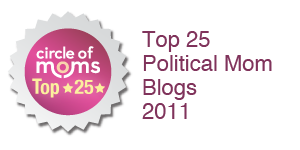There was nothing ambiguous about how I was raised. What my parents expected of me was crystal clear, as were the expectations of my teachers and my church. Always serve yourself last, my mother said. Make sure, wherever you are, that everyone else is taken care of before you think of yourself. Don’t raise your hand in class, even if you know the answer, because boys don’t like smart girls. I remember the humorless face of my fifth grade teacher as she intoned “Girls must be perfect, their clothes, their hair, their manners. Absolutely perfect.” Don’t call attention to yourself. Don’t be proud of yourself, or people will think you’re stuck up and you won’t have any friends. Don’t make waves, don’t cause a scene, lower your voice, and sit down. It doesn’t matter whether you ever have any children - it only matters that your brother has children to carry on the family name. I absorbed every lesson, never got in trouble, never missed a curfew, never got a bad grade, never put a foot wrong. I played my assigned role well into my twenties, and life was fairly pleasant and predictable as long as I stuck close to the rules. I got to be really, awfully, frighteningly good at it.
I realize now how a person can be so complicit working against her own interest. As long as I did what I was told, I didn’t inconvenience my family, my teachers, my priests, or anyone in authority over me. I wanted their approval. I didn’t know, or even suspect, that life could be dealt with any other way. Looking back, I feel pity and even a bit of contempt for that younger me, who never dared risk a whiff of disapproval by stepping out of line. I cannot imagine now how I could have so willingly sacrificed my own opinions, my sense of worth, and believed others would know better what was right for me. It has taken me years to fill up the space in my head that the voices of others used to occupy.
What started it all was becoming a mother. After that, I kept noticing a situation here, picking up a fact there, and got to the tipping point pretty quickly. First, it was really little things, like the way a woman’s dress shirt costs more at the cleaner’s than a man’s oxford shirt, or deodorant targeted to women had a higher price than one for men. That rankled, but it wasn’t a big deal. Then I saw bigger differences. I learned that many insurance policies exclude coverage for the cost of prenatal care and childbirth, or make them available for additional premiums. Social Security benefits only accrue for paid work, which women do much less of as their breaks from employment are more frequent and last longer than men’s. The relentless work of motherhood is viewed as not being “a real job.” When mothers have “real jobs,” they are seen as less competent and less committed. Without paid leave or paid sick days, women have a harder time holding a job and taking care of their children. Men spend more time doing paid work, and women more time on unpaid labor, like childrearing or running a household. Women’s poverty rates are always higher than men’s. Women earn less than men for the same or comparable work. Medical research is done primarily for and on male subjects, and prescription dosing guidelines are developed on men. If men are the standard, women, simply by virtue of being non-men, are relegated to an inferior position.
The evidence began to pile on. I looked at my religion - all top positions occupied by men. I looked at my government - each of the three branches is primarily male. After last fall’s election, women are 18% of the U.S. Congress, 30% of the U.S. Supreme Court, and we’ve never had woman as President or Vice-President. And 2012 is called the Year of the Woman?? There is just one female governor in all of the 50 states. Women in business? The Fortune 500 CEO’s are 96% male. Women are better educated than men now, earning more degrees and higher grades, but they have to borrow more money to go to college, and their lower wages mean they spend more years paying it off. What’s worse, at one year after graduation, women are making less than the men they graduated with, even with the same majors, same work hours, and employment in the same fields. As I got older, it became impossible to just go along with the way things are. It is not acceptable, not for me, and not for my children. Putting everyone else’s interests before my own, not making waves, being cooperative and sitting down were not strategies to combat the injustice I saw everywhere.
I believe women are systematically disadvantaged in our society. Both my daughter and my son have much to lose in a world where the prevailing perspective is male. We can’t pretend that the way things are is the way it should be, or the best we can do, or that it is even good enough. Women should have the same access to power, wealth, influence and authority as men do, at every level of society. If we did, being a mother wouldn’t put you at greater risk of being poor in old age. Men and women could be economically independent and also able to meet the care needs of their children, parents, or other family members. Helping others to thrive and flourish would be seen as a mark of personal success in the same way that amassing a fortune is esteemed now. No one would notice if the President or priest or professor was a woman, because a woman’s face would be as familiar as a man’s in those roles. Men would have baby food ads pitched at them, be elementary school teachers, and worry about being good “nurturers” as well as “providers.” And maybe anti-rape efforts would get as much national attention as gun rights.
“Til next time,
Your (Wo)Man in Washington



